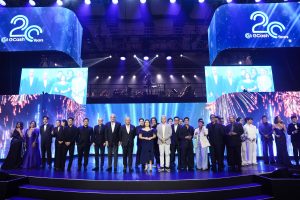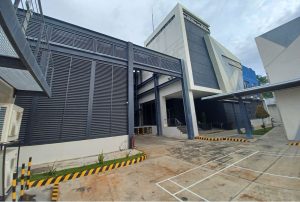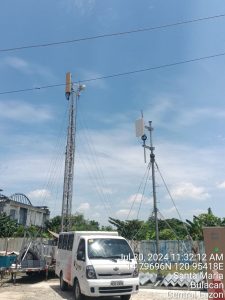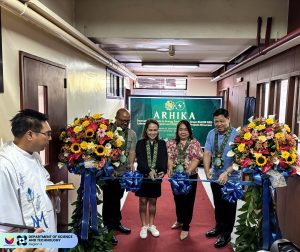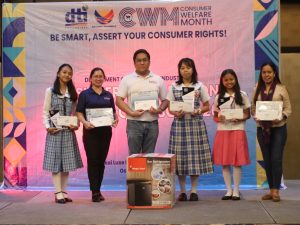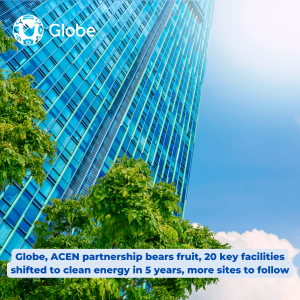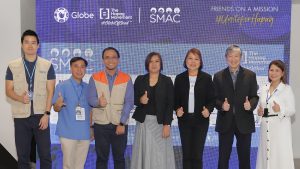To promote bamboo for circular economy, climate resilience, and sustainability, team KAWAYANIHAN composed of the Department of Science and Technology (DOST), along with over 30 institutions in the country, is all set to attempt to be listed in the Guinness World Records (GWR) for “Most People Planting Bamboo Simultaneously (multiple venues)” on October 18, 2024.
Congressman Jose Manuel F. Alba of the 1st District of Bukidnon is leading the team’s GWR attempt. This initiative aims to advocate relevant stakeholders, including policymakers, LGUs, NGAs, HEIs, and private institutions, to raise awareness of bamboo’s potential to generate wealth and create jobs while promoting green and sustainable practices.
The attempt results will be announced on November 28, 2024, at Limketkai Center, CDO, during the 2024 National Science, Technology, and Innovation Week celebration as part of the DOST Circular Economy Program launch.
What is Circular Economy?
According to ISO 59004:2024, Circular Economy is an economic system that uses a systemic approach to maintain a circular flow of resources by recovering, retaining, or adding to their value while contributing to sustainable development.
A circular economy is essential to conserving finite resources, reducing environmental impacts, and promoting economic resilience. It advocates prioritizing the reuse, repair, and recycling of materials, minimizes waste, lowers greenhouse gas emissions, and helps combat climate change.
Science, Technology, and Innovation for Circular Economy (STI4CE) Framework
To uphold the people’s right to a balanced and healthful ecology (1987 Constitution, Article II, Sec. 16) and promote equitable opportunities, income, and wealth (Article XII, Sec. 1), DOST introduced the Science, Technology, and Innovation for Circular Economy (STI4CE) Framework through Administrative Order No. 11. This framework fosters sustainable practices that enhance economic resilience and environmental sustainability.
With a vision of DOST as a leader in providing Innovative S&T solutions and opening opportunities towards a circular, green, smart and sustainable future, the policy directs DOST agencies to collaborate in advancing the STI4CE Framework, promoting a circular economy, sustainable consumption, production, and integrating ESG aspects.
Why Bamboo?
A 2019 INBAR paper highlighted bamboo’s potential in a circular economy, especially in the construction, fiber, and food industries. In 2023, Credence Research valued the global bamboo market at USD 73.59 billion, projected to reach USD 105.36 billion by 2032.
EO No. 879, through the Bamboo Industry Development Council, promotes the development of the bamboo industry. Bamboo matures in 3-5 years, can be harvested without replanting, and provides farmers with a sustainable income. The industry supports global sustainability goals, including SDGs 8 (Decent Work and Economic Growth), 13 (Climate Action), 15 (Life on Land), and 17 (Partnerships for the Goals).
The Project Sustainability Plan
The KAWAYANIHAN Circular Economy Movement will commence with widespread bamboo planting and geotagging as an initiative to encourage individuals to start planting bamboo to support the expected rise in demand for bamboo raw materials. It also aims to encourage public and private institutions to collaborate and invest in the growing bamboo industry to bridge the gaps in the value chain and attain a circular economy.
The plan is to geotag and input the data into the Bamboo Resource Inventory System (BRIS), a knowledge management portal developed by researchers from the Bamboo Niche R&D Center of Central Mindanao University (CMU) or other appropriate portal to identify and project the potential supply of bamboo and its socio-economic impact when fully utilized.
The Team Members
The following are DOST’s partners of the KAWAYANIHAN movement all over Mindanao:
The policymakers. Cong. Jose Manuel F. Alba, Buk D1, Cong. Christian S. Unabia, Mor D1, Cong. Yevgeny Vicente B. Emano, Mor D2, Cong. Lordan G. Suan, Cdo D1, Cong. Rufus B. Rodriguez, Cdo D2, Cong. Pantaleon D. Alvarez, Ddn D1, Cong. Rudy S. Caoagdan, Cotabato D2, Cong. Ma. Alana Samantha T. Santos, Cotabato D3, Cong. Raymond Democrito C. Mendoza, TUCP Partylist,
The Local Government Units of Cagayan de Oro City, Province of Misamis Oriental, Manolo Fortich, Tagoloan, Opol, Malitbog, Libona, Sumilao, Talakag, Brgy. Simbalan, Buenavista Agusan del Norte, Province of Davao del Sur, Matanao, Province of Davao del Norte, Kapalong, San Isidro, Talaingod, Panabo City, New Corella, Province of Cotabato, Carmen Cotabato,
Government Agencies, DA, DENR, PNP, DICT, 4th IDD Philippine Army, DOH-CHD – 10, DOH, DTI, PIA, Philippine Army 39th Infantry Batallion, DILG, Philippine Army 60th Infantry Batallion, Philippine Army 56th Infantry Batallion, DepEd, NCIP, DOLE, NIA, DAR, ATI, TESDA, DSWD, PCA, NCMF, Bamboo Industry Council, 602nd Infantry Brigade,
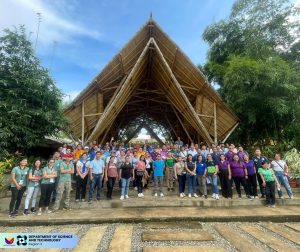
Academes, CMU, CSU, PSHS – Caraga Campus, DDSSC, Tagum City National Trade School, MSU-Naawan, Colegio de Ostaci, Inc,
Farmer Cooperatives and IP Communities, BUKTAMACO, Kapunungan ng mga Maguuma sa Simbalan, Kidsadmo – Erumanen ne Menuvu, Canitoan-Pagatpat-Lumbia Farmers Association Inc., Kulago Farmers Association Inc.,
and the private agencies, FICCO, Rizome Philippines, CLEAN INC—Macajalar Group, Woodworks Collection Inc., Huo Resources Corporation, TADECO, Digos Rotary Club, Sumifru Philippines Corp., Coca-Cola, Kilambay Plantation Corp., Tree Life, and the Diocese of Kidapawan Rotary Club of Mt. Apo.
The team members of the KAWAYANIHAN are committed to maintaining and growing the planted bamboo. (Joshua Robin/DOST 10)

